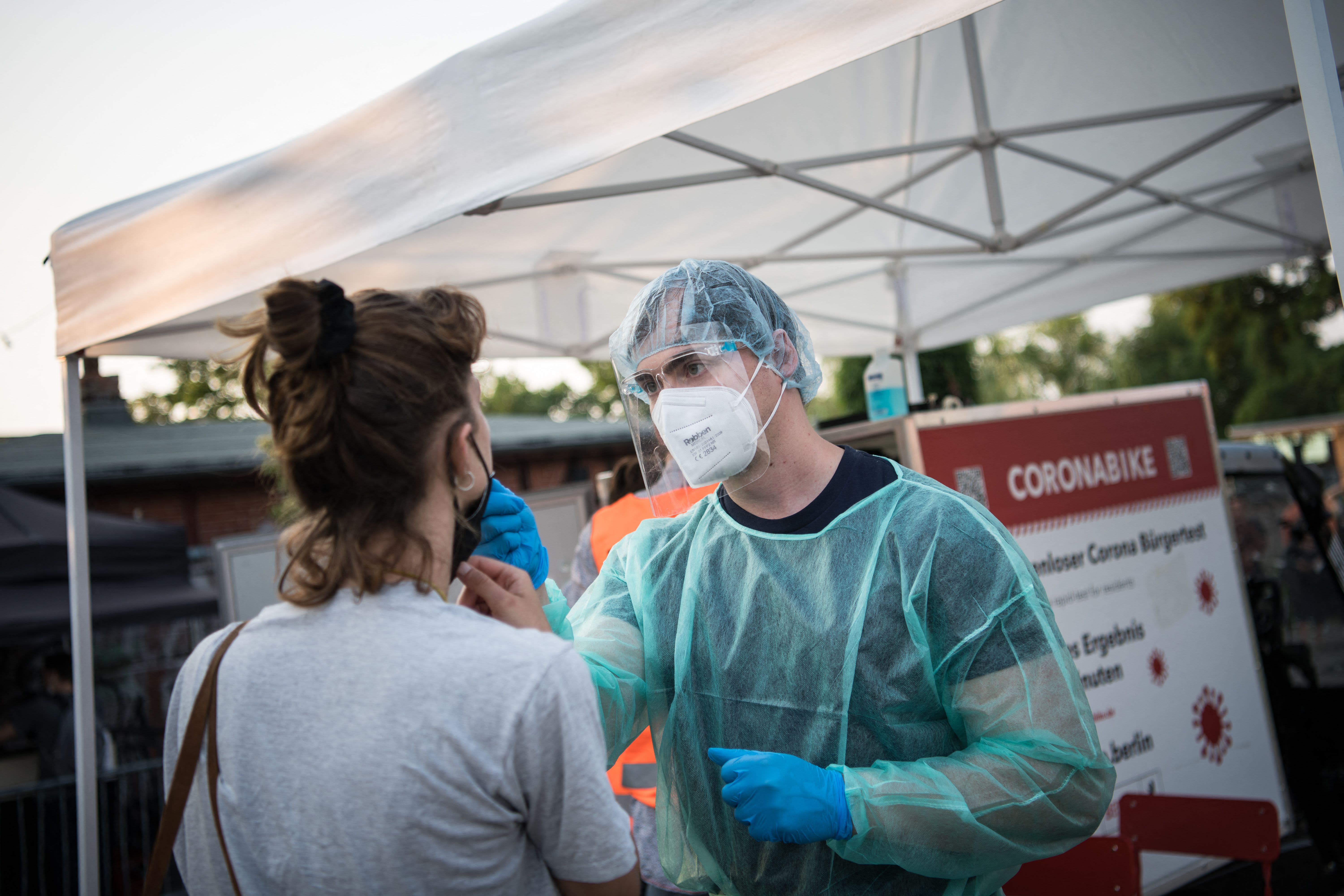Germanys winter Covid strategy could see unvaccinated people face tougher restrictions
 Jens Spahn, Federal Minister of Health, on the way to the presentation of the National Reserve Health Protection in the federal press conference on July 21, 2021 in Berlin, Germany.Andreas Gora | Getty Images News | Getty Images
Jens Spahn, Federal Minister of Health, on the way to the presentation of the National Reserve Health Protection in the federal press conference on July 21, 2021 in Berlin, Germany.Andreas Gora | Getty Images News | Getty ImagesLONDON â€" Germany's health ministry is preparing to introduce sweeping measures next month that could exclude unvaccinated people from many areas of public life if Covid-19 infection rates continue to increase.
Health Minister Jens Spahn has outlined proposals to parliament and representatives of Germany's 16 federal states detailing how the country should handle the ongoing coronavirus pandemic in the coming months.
It comes as German authorities remain wary of the potential impact of the highly transmissible delta Covid-19 variant at a time when many pandemic restrictions have been dropped. Covid-19 cases nationwide have risen gradually in recent weeks, albeit from a relatively low level.
Respiratory illnesses, such as Covid-19, tend to thrive during cooler weather conditions as people typically spend more time indoors clustered together, with less ventilation and less personal space than in the summer.
The country's new Covid-19 plan, entitled: "Safely through Autumn and Winter," was first reported by German media outlets DPA and Süddeutsche Zeitung.
What is being proposed?The measures, which would be among the strictest in Europe, would ensure that only those who have been vaccinated against the virus, have recovered from an infection or those who can demonstrate a negative test result would be able to access many facilities.
Shops, restaurants, hairdressers, beauty salons, indoor sports and large outdoor events were all listed as venues that could become inaccessible to those who did not meet the proposed changes.
This was referred to as the "3G rule," referring to the German terms for vaccinated (geimpft), recovered (genesen) and tested (getestet). The policy is already in place for several areas of public life, including air travel and hotel stays.
The health ministry indicated that the government was also considering the idea of imposing restrictions on unvaccinated people in the event that infections and hospitalizations continue to rise. This was referred to as the "2G rule," since only vaccinated or recovered people would be permitted to attend certain facilities while unvaccinated people would be excluded.
A woman is being tested for the coronavirus at a mobile test station next to a nightclub in Berlin's Kreuzberg district on July 23, 2021, amid the ongoing coronavirus / COVID-19 pandemic.STEFANIE LOOS | AFP | Getty ImagesAlongside these measures, the ministry recommended that face masks remain compulsory until spring 2022; test, ventilation and hygiene policies would need to be implemented in schools and daycare centers nationwide; and the country should do away with free Covid-19 tests. It is hoped the latter may incentivize some to get inoculated because vaccinations are being offered to all adults for free.
However, free rapid tests would still be available to those who cannot be vaccinated or are not recommended to do so, such as those who are pregnant, under the required age to receive the shot, those with allergies or other risk groups.
The Covid-19 plan is due to be debated at a summit between German Chancellor Angela Merkel and the state premiers on Aug. 10. If approved, the measures are expected to come into effect from September.
Lawmakers dividedCivil liberty groups have warned that measures akin to a vaccine mandate are likely to be counterproductive from a public health perspective and lawmakers should instead prioritize educating people about vaccinations.
Speaking at a press conference last month, Merkel warned measures that are "indirectly compulsory vaccination" must be carefully considered, suggesting the focus would remain on encouraging people to get their Covid-19 shots for the time being.
Lawmakers in the country appear to be split on the issue. Merkel's Chief of Staff Helge Braun said late last month that those who refuse the vaccine should not expect the same freedoms as those who have been fully inoculated.
Meanwhile, Families and Justice Minister Christine Lambrecht has since rejected this view, defending the country's current use of the "3G rule" and pushed for the government to consider other ways of encouraging vaccine uptake.
To date, more than 44.5 million people in Germany, roughly 53% of the overall population, are fully vaccinated against the virus.
Speaking at her last summer federal press conference as chancellor late last month, Merkel once again spoke out in favor of vaccination against Covid-19: "The more of us are vaccinated, the more freedom we will regain."
Merkel stressed it was important for people to encourage their family, friends and colleagues to consider getting the shot, warning that Germany's Robert Koch Institute for infectious diseases was expecting another sharp uptick in Covid-19 cases in the coming months.
"I say to all those of you who are still unsure: a vaccination doesn't just protect you, it protects the people you care about, the people who mean a lot to you, your loved ones," Merkel said.

0 Response to "Germanys winter Covid strategy could see unvaccinated people face tougher restrictions"
Post a Comment